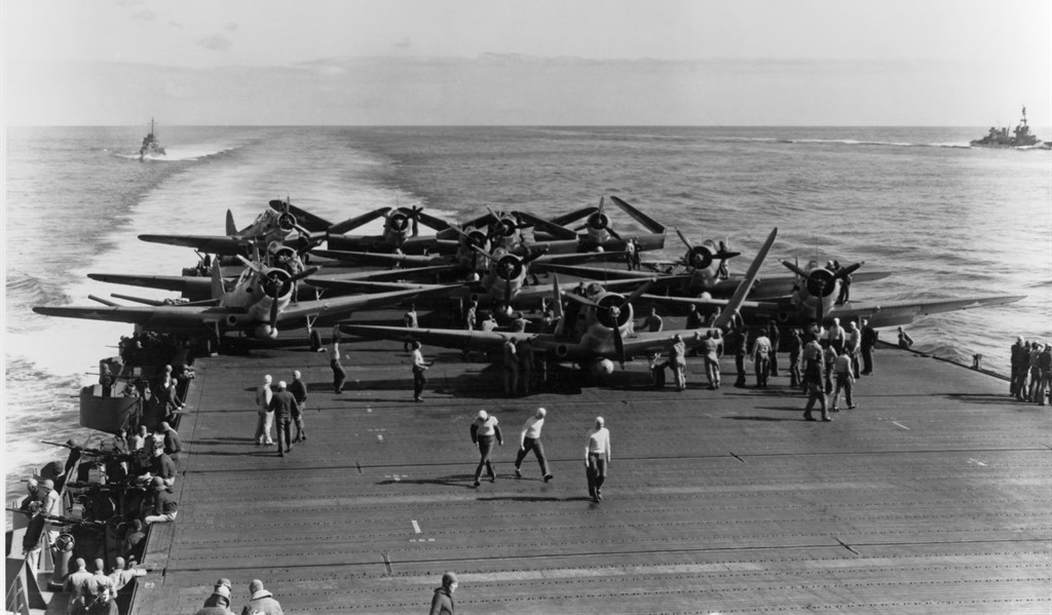“These are the heroes who helped end a war,” said Ronald Reagan of the U.S. troops on D-Day. That praise could be applied with equal truth to the U.S. airmen and sailors who fought so valiantly at the 1942 Battle of Midway.
The Battle of Midway started on June 4 and lasted through June 6, ending with the sinking of the USS Yorktown in the early hours of June 7. The crippling losses the Americans inflicted on the Japanese fleet proved a turning point in World War II’s Pacific theater. The Japanese were not defeated, but the slow march to defeat had begun, and millions of people would be the freer for it. The Americans who fought and died that day displayed courage and patriotism, in the truest sense described by Jesus Christ Himself in the Gospel of John (Jn.15:13), “Greater love than this no man hath, that a man lay down his life for his friends.”
At Midway, 307 Americans were killed, according to official U.S. Navy statistics. In contrast, some 4,800 Japanese were killed, and the Japanese lost more aircraft and ships. This was very important, not only for the U.S. war effort but also for global freedom. At the time, the Japanese were a dictatorship that believed so strongly in their own right to dominance, and that had such a different moral code from the West, that (as they proved on the islands) they were willing to fight literally to the last man against the Americans, and they massacred more people than the Nazis did (up to 10 million victims). The atrocities committed by the Japanese against civilians and prisoners of war would shock many modern Americans, particularly because Japan has changed so much since then.
My point is this — the Americans who fought at Midway, especially those who died, were putting into action the Biblical description of love. Today in the Catholic Church is the feast of the Sacred Heart of Jesus, commemorating Jesus’s self-sacrificial love that saved us, and it seems particularly fitting that it should coincide with the anniversary of Midway. The heroes of Midway bled and died so that their families, their children and grandchildren, and many millions of people they would never know, could have liberty. They laid down their lives for their friends. And for that we owe them eternal gratitude and honor.
The Navy explains the significance of Midway:
Due to American COMINT capabilities, astute intelligence analysis, judicious aircraft carrier tactics, and more than a little luck, the U.S. Navy had inflicted a smashing defeat on the Imperial Japanese Navy. Although the performance of the three American carrier air groups would later be considered uneven, their pilots and crews had won the day through courage, determination, and heroic sacrifice. Against the loss of one U.S. carrier, the Japanese lost four—all of which had participated in the Pearl Harbor attack. More importantly, the Japanese lost over 100 trained pilots, who could not be replaced. In a larger strategic sense, the Japanese offensive in the Pacific was derailed and their plans to advance on New Caledonia, Fiji, and Samoa postponed. The balance of sea power in the Pacific had begun to shift.
That shift was terribly important, as I emphasized. Both Americans and the Asian peoples victimized by Japan, including the Chinese, Koreans, and Filipinos, not to mention future generations of Japanese, would benefit from the defeat of the Japanese Imperial regime in World War II. And the men who caused that new dawn of liberty, in the truest sense of love and patriotism, were the Midway heroes who laid down their lives for their friends.










